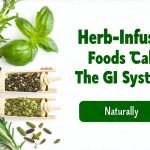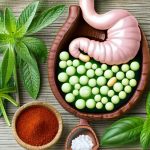For centuries, cultures around the globe have utilized herbal remedies to support overall health and well-being. Among these traditional practices, the consumption of herbal teas stands out as a gentle yet potent method for addressing various ailments, particularly those related to digestive wellness. Beyond simply offering a soothing beverage, carefully selected herbal teas can play a valuable role in promoting healthy digestion, easing discomfort, and supporting gut function when incorporated into a balanced lifestyle.
The art of using herbs for health is deeply rooted in history, passed down through generations. Modern research continues to explore the compounds within these plants that contribute to their potential benefits, but it’s important to remember that herbal teas are not intended as cures or replacements for medical treatment. They offer a complementary approach to wellness, working alongside healthy dietary habits and lifestyle choices.
Understanding Digestion & Herbal Support
Digestion is a complex process involving multiple organs – from the mouth to the intestines – each playing a crucial role in breaking down food and absorbing nutrients. Discomfort can arise at any point along this pathway due to factors like diet, stress, or underlying health conditions. Herbal teas offer various ways to potentially support different stages of digestion and address common symptoms associated with digestive upset.
Herbal teas aren’t one-size-fits-all; the best choice depends on individual needs and specific concerns. Some herbs are known for their calming properties that can soothe an irritated gut, while others may help stimulate digestion or reduce bloating. Understanding your own body and recognizing what triggers digestive issues is essential in selecting the most appropriate herbal tea for support.
Common Herbal Teas for Digestive Wellness
Several herbal teas have long been associated with promoting healthy digestion. Peppermint, ginger, chamomile, and fennel are among the most frequently used options, each offering unique properties that can contribute to overall digestive wellness. These aren’t substitutes for medical advice or treatment but can be incorporated into a holistic approach to gut health.
The Soothing Power of Chamomile
Chamomile tea is renowned for its calming effects, extending beyond just relaxation. Its gentle nature can help soothe an upset stomach and reduce inflammation in the digestive tract. It’s often recommended for individuals experiencing stress or anxiety, which can exacerbate digestive issues. This herb contains compounds thought to have anti-inflammatory properties that may ease discomfort and promote a sense of calm.
Chamomile’s mild flavor makes it a pleasant choice for evening consumption, potentially aiding in better sleep which further supports overall health and indirectly contributes to improved digestion. It’s important to note that individuals with allergies to ragweed or other plants in the Asteraceae family should exercise caution when consuming chamomile tea.
Ginger’s Digestive Kickstart
Ginger has a long history of use as a digestive aid, particularly for relieving nausea and bloating. Its pungent aroma and warming properties can stimulate digestion and help move food through the digestive system more efficiently. Many people find ginger tea helpful after meals to prevent indigestion or when experiencing motion sickness.
The active compounds in ginger, such as gingerol, are believed to have anti-inflammatory effects and may also help reduce muscle spasms in the intestines. However, excessive consumption of ginger can potentially interact with blood thinners; therefore individuals on medication should consult a healthcare professional before incorporating it regularly into their diet.
Peppermint for Bloat & Gas Relief
Peppermint tea is widely recognized for its ability to soothe digestive discomfort, particularly bloating and gas. The menthol in peppermint helps relax the muscles of the digestive tract, allowing gas to pass more easily and reducing cramping. It can also help alleviate symptoms associated with Irritable Bowel Syndrome (IBS) for some individuals.
While generally well-tolerated, peppermint tea may not be suitable for those experiencing heartburn or acid reflux as it can sometimes relax the esophageal sphincter, potentially leading to increased acid production. Always listen to your body and discontinue use if you experience any adverse effects.
Ultimately, incorporating herbal teas into a mindful lifestyle that prioritizes balanced nutrition, stress management, and adequate hydration is key to supporting optimal digestive wellness. They are best viewed as complementary tools within a broader approach to health rather than standalone solutions.


















